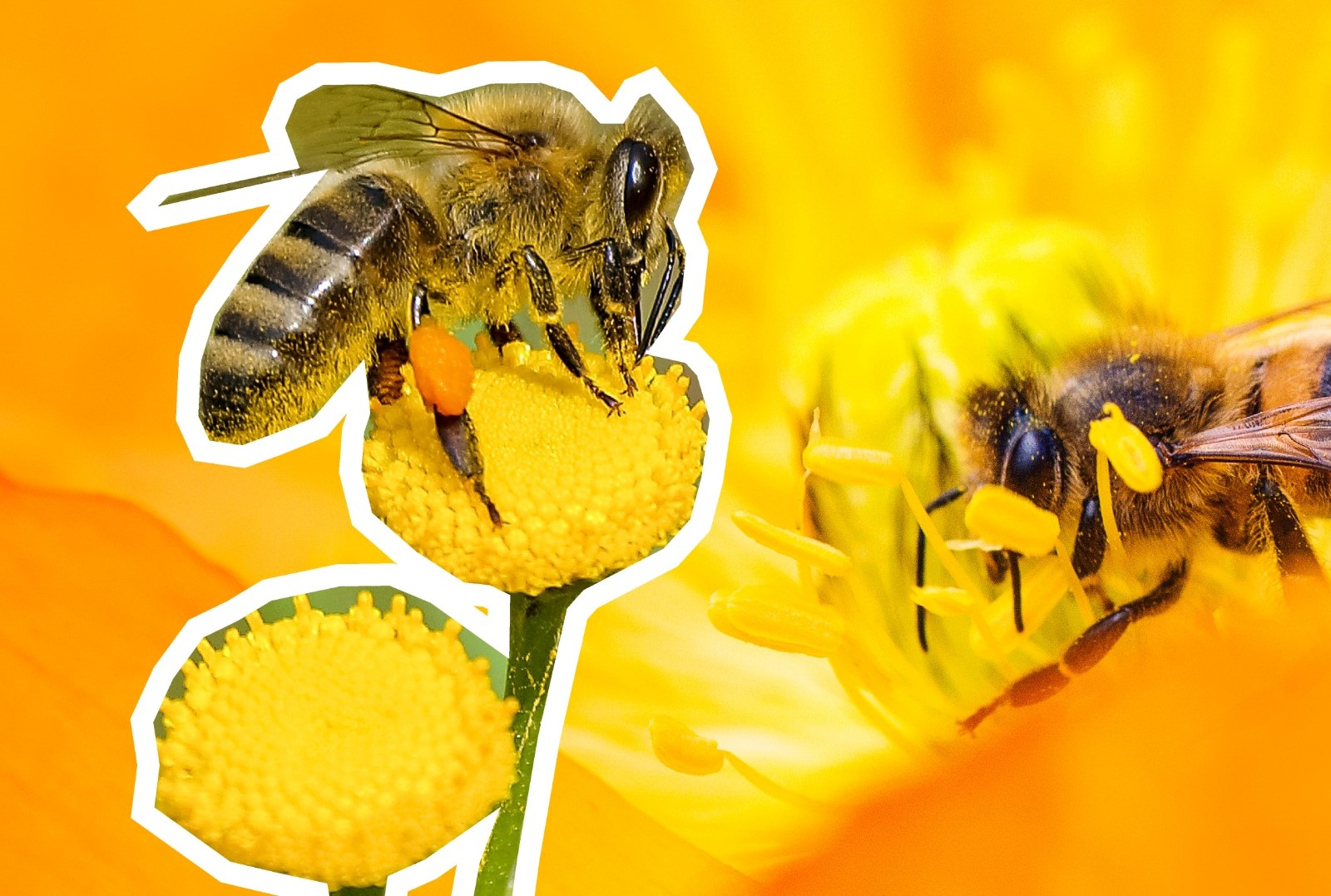We Are Saving the Wrong Bees

Why honeybees alone won’t solve the pollination issue?
When we think of pollination, the first thing that comes to our mind is honeybees. These little fuzzy creatures catch pollens and transfer them from one flower to another while searching for food. Among people, they are also known as the saviors of the world. Nowadays, you can find cities and communities putting more effort into increasing the number of honeybees. But is this the right approach? Are honeybees key species in pollination?
It is known that pollinators are in decline, yet most people are unaware that honeybee populations are expanding worldwide. For the last 50 years, domesticated honeybees have increased by 45%, but we are still struggling with the pollination crisis. So, what’s the problem? It is all about prioritizing one specific bee over the rest. There are thousands of bee species that pollinate as many plants as honeybees, yet they don’t get enough recognition.
Advantages of Wild Bees
Wild bees have more advantages than commercial ones. Think of monoculture; if you grow the same plant in soil, some nutrients have been completely used, and some have not been used. The same concept applies to bees; specific species are responsible for pollinating specific plants. Domesticated honeybees effectively pollinate several plants, and the rest not so much. That’s why building beehives for large crop fields does not help the pollination much unless you got lucky with their food preferences. Another advantage of bees is their resilience toward diseases; honeybees are more prone to get sicker and spread diseases faster across the field, harming the vegetation. The spread is much lower if more than one bee species are present in the field.
Unfortunately, we are losing the diversity of wild bees pretty fast. It has been estimated that we have already lost one-fourth of bees and butterflies. The main drivers of their extinction are agricultural activities; we use so many fertilisers, which causes biodiversity and habitat loss. Lesser wild bees mean lesser pollination of diverse plants. This also means losing animals that feed on wild plants. The worst possible outcome would be living in a world where only 5 to 10 flora and fauna species are present. It might sound dramatic, but we are not that far off from a global food crisis due to pollination. Countries like China and the United States rely on mono-agriculture, where wild bees and other insects simply disappear.
The Solution
Considering the fatal consequences, what would be the right way to improve pollination? The most straightforward answer is to welcome other bees to your community. This can be done in various ways. You can contribute to sustainable food production by supporting local farmers who do not rely on monoculture but rather on the diversity of bees and insects. If you want to increase the number of bees directly in your house, you can plant and protect plants native to your area. If you have a sunny area and dead logs nearby, that will be a bonus since wild bees prefer to breed in such places. Simply following these tips in your neighbourhood will allow you to see different types of bees and insects.
There are more strategies that municipalities and provinces can initiate to increase the pollination rate on a national level. For instance, in the Netherlands, more than 11 000 people participated in a project to create bee hotels in urban areas. These hotels are designed so that all types of native bees can breed, grow, and live despite the surrounding greyness. An average of 18 to 20 bees and hoverflies were recorded in areas with bee hotels which is a great indicator. It shows a place for diversity and growth of bees even in busy Dutch cities.
To keep in mind…
As the weather is getting warmer, I encourage you to go out and look at your surroundings. Any potential for bee hotels? Do you see insects hovering around the plants? Can you see the bees taking out the nectar from the flower? What you see is the thriving livelihood and its residents that work so hard to produce food for us that we put on our tables. If you feel they are in trouble, take action into your own hands and create a better environment for these creatures.
